In the summer of 2009, Rabbi Yehoshua B. Gordon sat down to give a class in the tastefully appointed Chabad center—Chabad of the Valley in Encino, Calif.—that he had founded with his wife, Deborah, in 1973. It was a class like any other, except that there was a camera in the room, allowing hundreds of people around the world to listen in as he taught Tanya, the foundational work of Chabad philosophy, along with the daily portion of Chumash and Rashi.
Rabbi Gordon had been teaching the class for many years, but he had always resisted recording. Due to the persistence of Daniel Aharonoff, a regular attendee, the rabbi finally agreed to allow the camera into the room.
Following the daily study cycle, the rabbi taught his quickly growing audience all of Tanya, Chumash and Rashi, until every portion had been recorded. The recordings remain on Jewish.tv, where thousands continue to study them on a daily basis.
The group then began studying Mishneh Torah, Maimonides’ codification of Jewish law, following the three-year track established by the Lubavitcher Rebbe, Rabbi Menachem M. Schneerson, of righteous memory.
With a month to go until Dec. 14, when the final chapter of Mishneh Torah will be studied this year and the entire 1,017-chapter series will have been recorded, Rabbi Gordon took time to share his thoughts and ruminations.
Q: Can you perhaps give us a little feel of what it’s like for those learning with you?
A: It has been exhilarating and exciting for us—both for those of us in the room and for those listening in from all around the world. Here in California, we have a core group of 20 to 25 devoted students who come every day to study—professionals, business people and others from all walks of life. Since we cannot record on Shabbat, we record an extra session on Fridays. We have breakfast, and everyone settles down to the subject at hand.
Q: How have you seen your students change with time?
A: They’ve experienced learning in a way they’ve never had before. Some of them have minimal formal Jewish education, so this is a real eye-opener for them. There is no similar experience to learning Mishneh Torah, which systematically goes through every single facet of Jewish law. They walk away with a radically different level of knowledge. It’s what the Rebbe had in mind when he started the campaign, that people should learn the whole Torah.

Q: Now that you’ve completed the cycle, will the class continue?
A: It’s all online, so now we are going on to the next project: learning a page of Talmud every day. We will not be following any particular cycle, but we do plan on studying around one page a day. We’ll begin with the first tractate, Berachot, and then we’ll see from there.
Q: It’s been so many years that you have been teaching online. What keeps you motivated to do this every single day?
A: I guess you can say it’s in my DNA. My father, Rabbi Sholom B. Gordon, of blessed memory, taught in his synagogue in New Jersey every day for nearly 60 years, and it’s something he taught his children to do as well. Parenthetically, in his early-morning daily class, my father taught Mishnah over many years, completing all six orders many times. Sometimes, he would study with two or three people, and sometimes with 10 or 15; it made no difference. Imagine if the Internet would have been accessible then as it is now; the world would have been able to study with him. There are many scholars more learned than myself, but I’ve been given the gift of clarity, the ability to make things simple and understandable. One of my greatest joys comes from hearing from people who tell me that they learn with me regularly, and that they now understand better than they did before.
Q: Do you get a lot of feedback?
A: Oh, yes. I hear from someone just about every day. I travel widely, and I often meet strangers who tell me that they “know” me because they learn from my classes on Chabad.org. It’s incomparable to anything else—an aspect of life that I never imagined—and it’s wonderful.
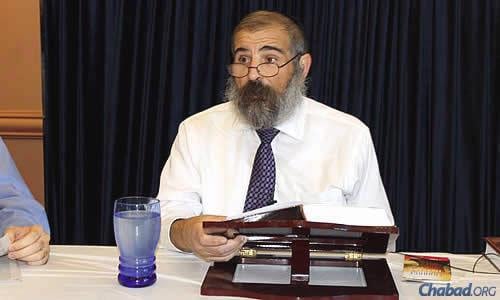
Q: Can anyone learn?
A: I believe so. Here is a delightful anecdote: When my mother, of blessed memory, was nearing the end of her life, she was living for extended periods of time with my sister, Bluma Rivkin, in New Orleans. At that time, she was watching my class on a daily basis. Before the holiday of Sukkot, my sister said to my mother that she hoped she would be well enough to come down to the sukkah. Suddenly, the non-Jewish aide popped up, saying, “but we learned with Rabbi Gordon that a person who’s not well is exempt from dwelling in the sukkah.”
Q: You are the rabbi of a bustling congregation and oversee a string of Chabad centers all over California’s San Fernando Valley. How do you find time to prepare and deliver these classes on a daily basis?
A: I’ve been asked that by many of my peers as well. My answer is that for me, this is the greatest therapeutic gift there can be. At all other times, my mind is always wandering as I think about the pressing issues of the day. When I’m preparing—and especially, when I am teaching—a class and I know that it will be recorded and I need to get it right, I’m able to push myself to focus 100 percent. If anything, this is my most relaxing moment of the day.
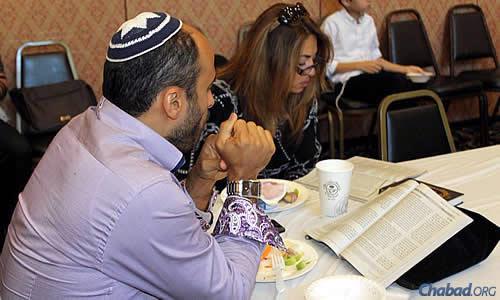
Q: You are about to end one area of Torah and begin another. How does that feel?
A: Learning Torah is a journey. We’re always going somewhere, progressing to another plane. You never know what you can achieve. It’s been an exhilarating experience so far, and I expect the Talmud class to be even more so.
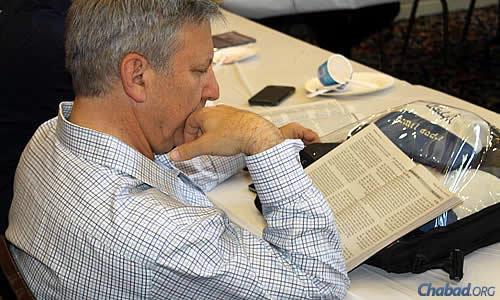
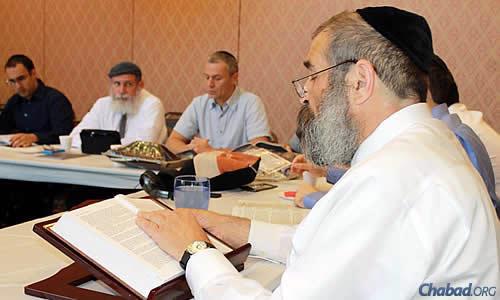




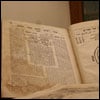




Join the Discussion